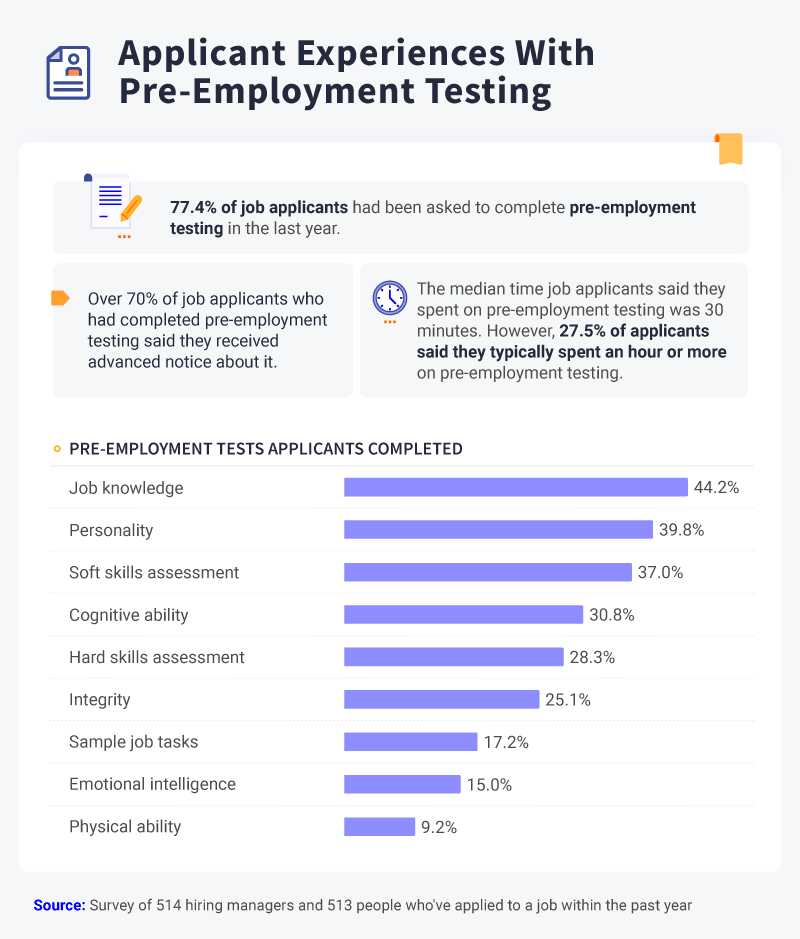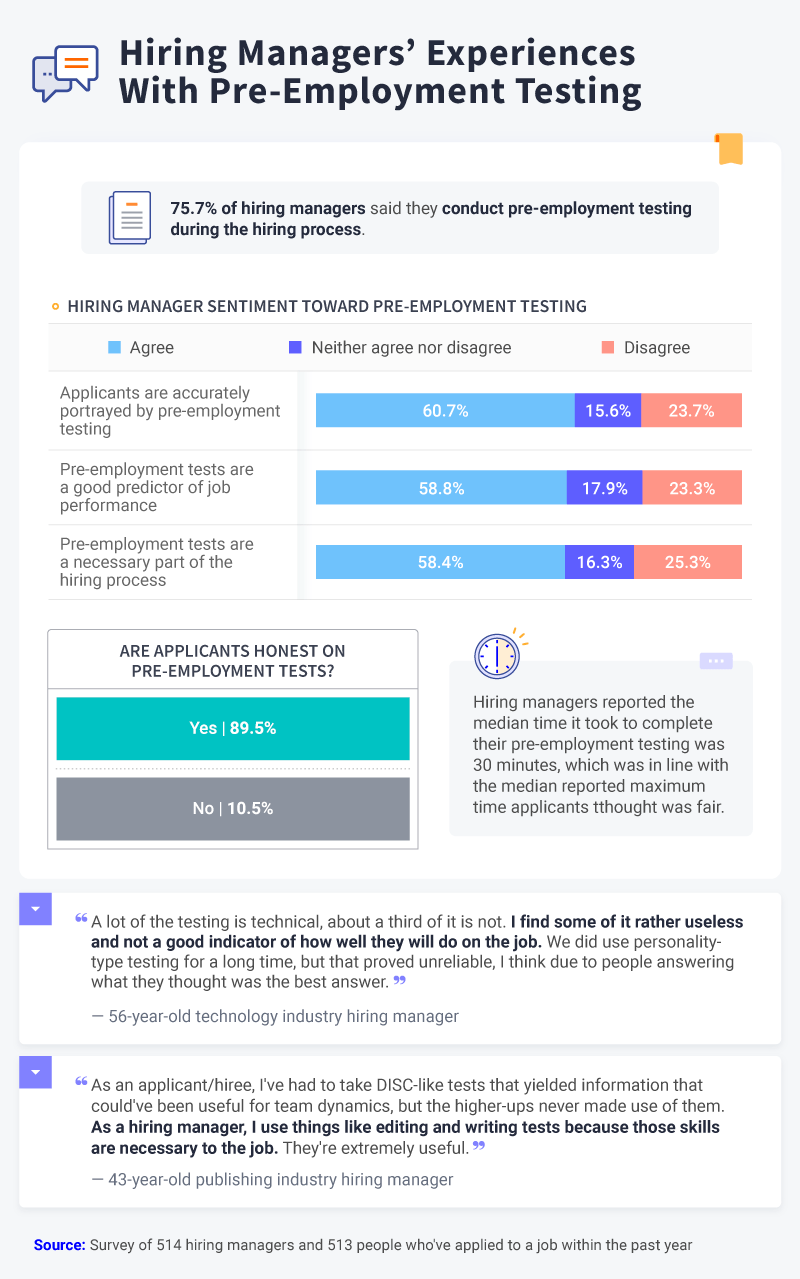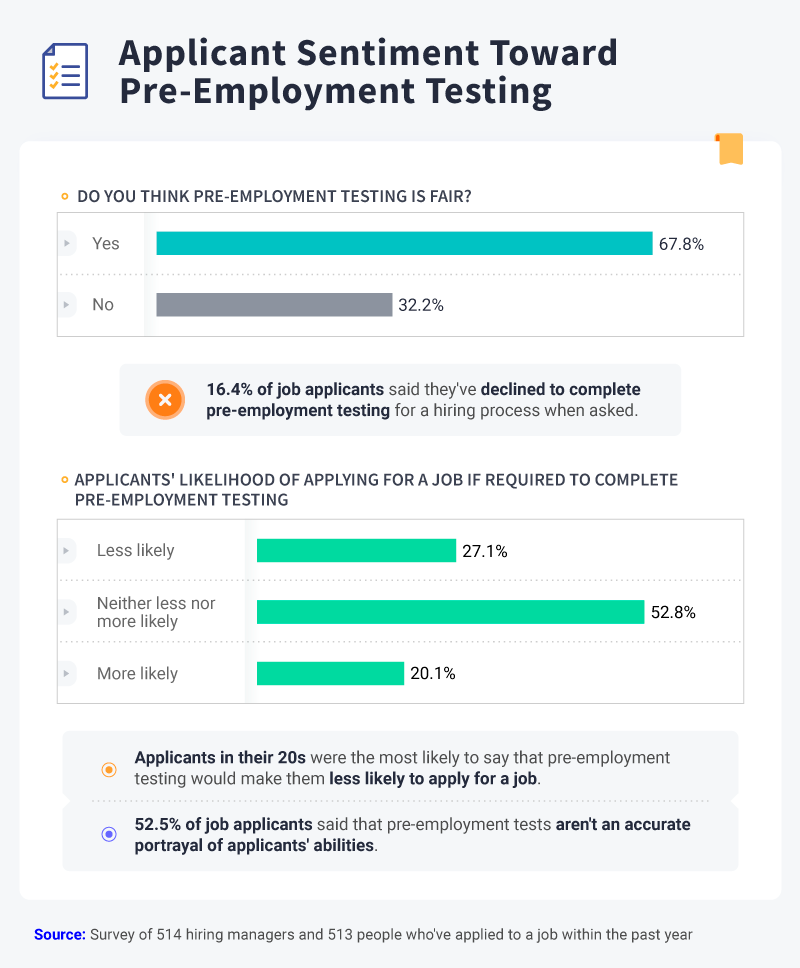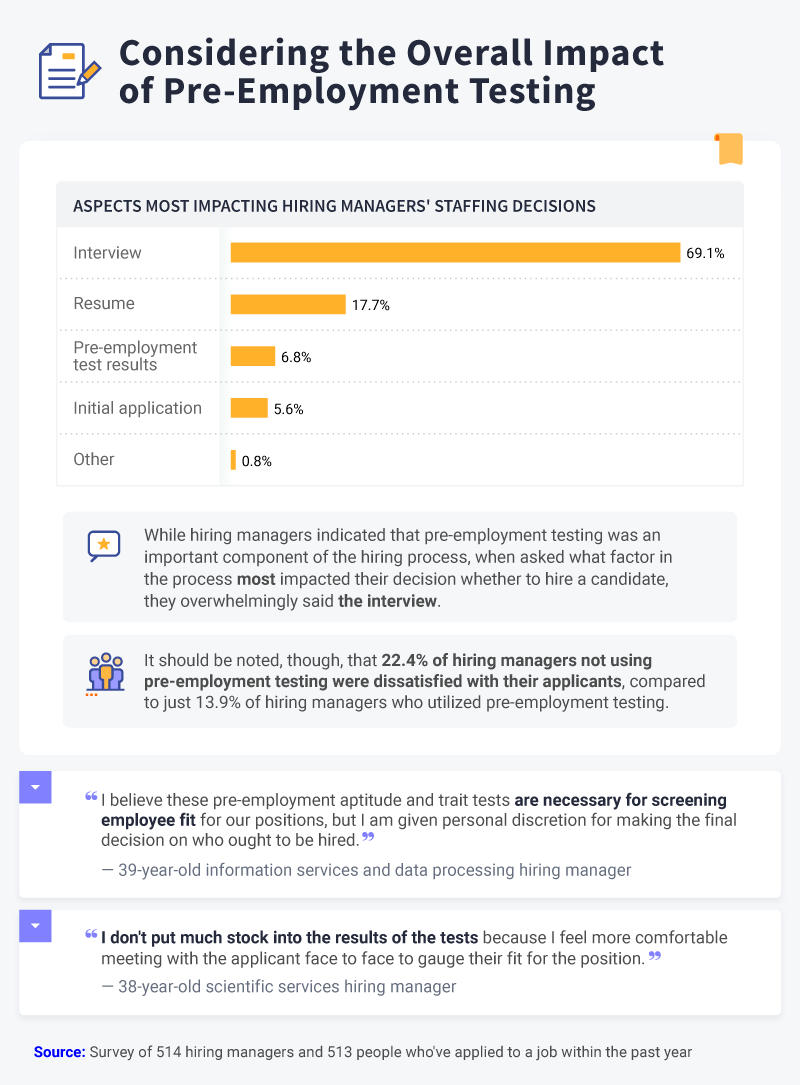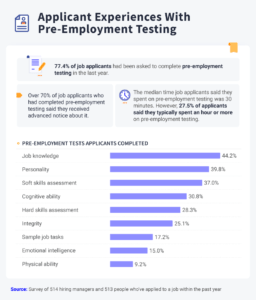
At a time when unemployment is at unprecedented levels and the economy is suffering, people are applying to jobs at record rates. That means that hiring managers are having to comb through a much higher volume of applications than usual, which, understandably, can be a monumentally overwhelming task.To help get to stronger candidates, many hiring managers are including pre-employment tests as part of the application process.
Q2 2020 hedge fund letters, conferences and more
Pre-Employment Tests As A Part Of An Application Process
These tests are created to show differences between candidates in a more defined, cognitive way, and they’re becoming more and more common with time.
To get an idea of how both sides of the hiring process – applicants and hiring managers – feel about these tests, SimplyHired surveyed 1,027 people to see if these tests are effective or not in today’s job market.
The New Standard?
The data from SimplyHired showed that a remarkable 77.4% of job applicants surveyed said they had to take a pre-employment test during an application process. On average, it took 30 minutes to complete a test; still, 27.5% of those surveyed said they took an hour or longer to finish it.
What exactly is on these tests? Forty-four percent of those surveyed said that the questions were job-related, and 30.8% reported having to answer cognitive questions. There’s a key difference between these two query types that help hiring managers ascertain an applicant’s potential: The job-related questions are meant to show someone’s knowledge of the job itself, while the cognitive questions are designed to demonstrate whether someone has strong enough learning skills.
Interestingly, 15% of applicants surveyed said they were asked questions related to their emotional intelligence, and 9.2% even said they were asked about their physical ability.
Hiring Managers Weigh In
On the other side of this are the hiring managers, whose results in the survey seem to fall in line with what applicants reported. More than three-quarters of hiring managers said they conducted pre-employment tests, and, interestingly enough, 60.7% of those surveyed felt that the applicants were portrayed accurately by the tests.
How do hiring managers feel about the necessity of these tests? As it turns out, most of them think they’re an essential part of the hiring process. When asked about necessity, 58.4% of the hiring managers who took part in the study said they felt it was a necessary step. Just over 16% were indifferent, while 25.3% said they didn’t feel pre-employment testing was necessary.
The Fairness Question
When it comes to these increasingly utilized pre-employment tests, the obvious question remains: Are these tests fair? Somewhat surprisingly, applicants surveyed for the study overwhelmingly stated that they felt the tests were fair – 67.8%, to be exact. That said, 16.4% of those surveyed said they’d declined to finish an application due to the fact that there was a pre-employment test involved. And 27.1% said they were less likely to apply for a job that included a test.
Nearly 53% of applicants, though, said they were neither more nor less likely to apply for something based on the presence of a pre-employment test. Of those who said they were less likely to apply, the majority were people in their 20s.
Perhaps the most problematic view from the perspective of applicants is that over half said they didn’t think these tests accurately showed their abilities. This ultimately means that, from their perspective, hiring managers aren’t getting the right impression and may make off-base assumptions about someone based on the results of these tests.
Making the Decision
In the end, hiring managers have to decide who the right candidate is for a job. How much do pre-employment tests factor into this result of the hiring process? As it turns out, not much. An overwhelming majority of hiring managers surveyed said that the interview is ultimately the most important factor in a decision to hire someone. Roughly 69% of hiring managers cited it as the key factor, while 17.7% said a resume had the most impact on a decision.
Just 6.8% of those surveyed said that pre-employment tests had the biggest impact on a hiring decision, although 22.4% of hiring managers who didn’t utilize a pre-employment test said they were more often dissatisfied with the people they hired. This indicates that while pre-employments tests may not make or break a candidacy, they can play a role in determining who is best suited for a job. These days, given the state of the economy and the job market, any combination of things can help to ensure that companies find the right people. The rise in popularity of pre-employment testing is a strong indicator that hiring managers are taking more nuanced measures than ever to get through high volumes of applications to find the best possible hires.
The post The Hard Truths About Pre-Employment Testing appeared first on ValueWalk.

